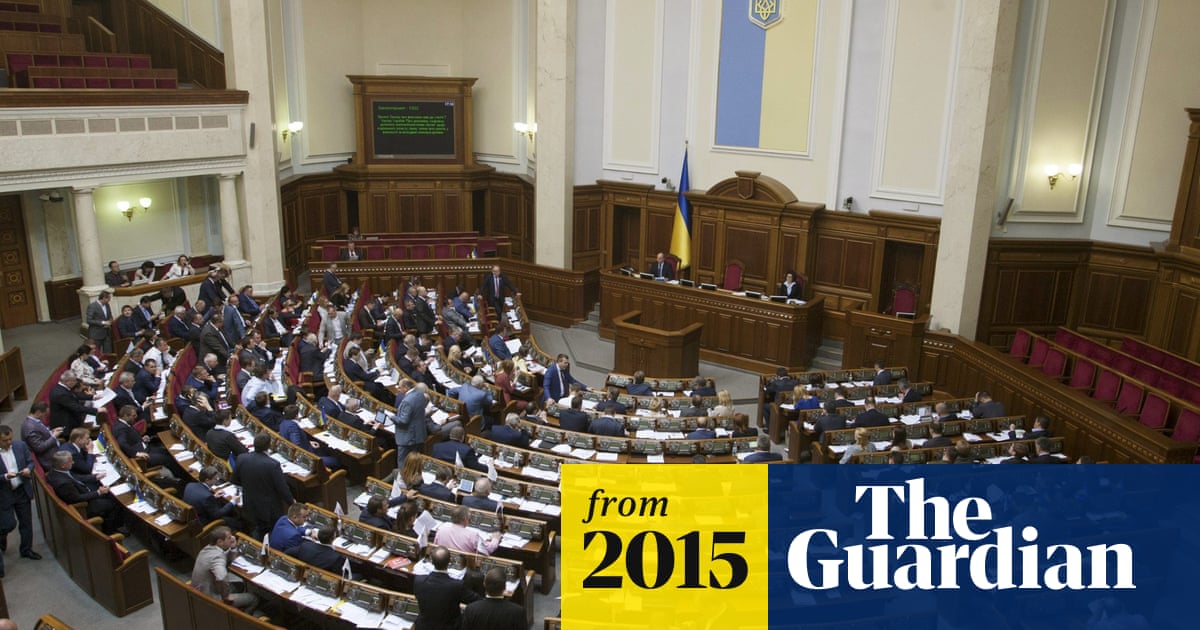Re: Regional geopolitics
Ինչու՞ ԱՄՆ, եւ ինչու՞ հիմա: Ինչ է փոխվել ԱՄՆ քաղաքականության մեջ
ԻԳՈՐ ՄՈՒՐԱԴՅԱՆ, Քաղաքագետ
25 Հուլիսի 2015,
ԱՄՆ ձեռնմուխ է եղել Հայաստանի եւ Ադրբեջանի միջեւ հակամարտության հանգուցալուծման նոր ծրագրերի: Ինչու՞ ԱՄՆ, եւ ինչու՞ հիմա:
Ռուսաստանը նահանջում է եւ պատրաստ է շատ զիջումների, այդ փվում փսխզիջումների եւ ամենակորստաբեր զիջումների Հարավային կովկասում եւ Կենտրոնական Ասիայում, չխոսելով Ուկրաինայի մասին: Ռուսների հետ այժմ կարելի է պայմանավորվել ինչ ուզես եւ ամերիկացիները հնարավորությունը բաց չեն թողնի:
Մինսկի խումբը, որը մնացել է միակ ասպարեզը, որտեղ ԱՄՆ եւ Ռուսաստանը մասնակցում են միջազգային հարցերի լուծմանը, պետք է օգտագործվի լիարժեք: Հայաստանը թույլ է տվել քայլեր, որոնք հաստատել են ԱՄՆ առավել հեռատես փորձագետների գնահատականները, եւ հայտնվել է մի իրավիճակում, երբ ոչ մեկին չի հետաքրքրում ոչ ԱՄՆ-ում, ոչ Եվրոպայում: Հայաստանը ջնջել է իրեն Արեւմտյան հանրության շահերից եւ թերեւս ընդմիշտ, համենայն դեպս, տեսանելի ապագայում:
Հայաստանը չունի գործընկերներ եւ բարեկամներ Արեւմտյան աշխարհում եւ հանձնված է քամիներին, նրա հետ կարելի է անել ինչ կամենաս, բացի ցեղասպան գործողություններից: Ոչ ԱՄՆ եվ ոչ էլ ՆԱՏՕի համար, առավել եվս Եվրամիության համար չկա որեւէ ռեզոն համաձայնել հետագայում էլ ղարաբաղյան նահանգը պահել հայկական վերահսկողության տակ:
ԱՄՆ առաջ առկա է Թուրքիայի հետ հարաբերությունների կարգավորման խնդիրը, ընդ որում Անկարան այդ անհրաժեշտությանն է գալիս ծեծված կողմի կարգավիճակով: Բայց ինչպես էլ Թուրքիան չընդունի ԱՄՆ պայմանները, ամերիկացիներն էլ պետք է գնան թուրքերին որոշ զիջումների, եւ դա պետք է տեղի ունենա:
Ընդ որում ԱՄՆ վստահ է, որ ղարաբաղյան նահանգի վերադարձը Ադրբեջանին չի բերի էքսցեսների եւ հայկական բնակչության դեպորտացիայի, բայց կբերի Հայաստանի եւ Ադրբեջանի հանդեպ ԱՄՆ վերահսկողության ուժեղացման, եւ բնականաբար Հարավային Կովկասը Ռուսաստանի ազդեցությունից դուրս բերելուն:
Հայաստանն ու Սփյուռքի հայկական կազմակերպությունները չկարողացան նույնիսկ փոքր չափով օգտվել թուրք-ամերիկյան հարաբերության վատթարացման երկարատեւ շրջանից /առնվազն 15 տարի/: Հայաստանի համար առաջացավ մի շրջան, երբ ԱՄՆ ձեւավորեց Թուրքայի զսպման գոտի, եւ հետագայում ստեղծվեց Թուրքիայի եւ Ռուսաստանի «կրկնակի զսպման» սխեման:
Այժմ, երբ Իրանն ու ԱՄՆ կարգավորում են հարաբերությունը, Թուրքիայի եւ Ռուսաստանի համար մնում է միակ ելքը իրավիճակից՝ պայմանավորվել ամերիկացիների հետ Հարավային Կովկասի հարցում: Սակայն, ԱՄՆ ցանկանում է «դուբլ» անել եւ ոչ միայն Իրանի, այլեւ Թուրքիայի հետ հարաբերությունը բերել վերահսկողության իրավիճակի եւ համապատասխանեցնել ԱՄՆ եւ նրա արեւմտյան գործընկերների շահերին:
Ինչի՞ց ելնելով պետք է Արեւմտյան հանրությունը, ԱՄՆ եւ ՆԱՏՕ-ն պաշտպանեն Հայաստանի շահերը, եթե նա ազդարարել է, որ հանդիսանում է Արեւմուտքի հակառակորդը եւ Ռուսաստանի հլու վասալը: Հայաստանն այդպիսով դառնում է պատժի ենթակա: Խնդիրը այն է, որ միջազգային քաղաքականության մեջ երբեմն վճռորոշ դեր է կատարում ժամանակի գործոնը: Հայաստանն ուշացել է եւ բաց թողել ժամանակը, ընդ որում այս անգամ՝ անհուսորեն: Հայաստանը Ռուսաստանի վասալն է, եւ հայկական հանրության հատկանիշներից մեկը կատարված փաստերի հանդեպ տոտալ անհավատությունն է:
Երեւի թե, հարկ կլինի ենթարկվել աղետի, համոզվելու համար այն ամենի հարցում, ինչի մասին խոսվել է շատ անգամ: Հայերը բավական հոռետեսորեն եւ թերահավատությամբ ե մոտենում վասալ բառին: Բայց այն, ինչ այժմ ցանկանում են անել Հայաստանի հետ, դա վասալիտետի արդյունք է:
«Աշխարհը փլվում է, բայց դեռ կարելի է զվարճանալ եւ ժամանակ անցկացնել»:
- See more at: http://www.lragir.am/index/arm/0/com....ql4pOWXT.dpuf
Ինչու՞ ԱՄՆ, եւ ինչու՞ հիմա: Ինչ է փոխվել ԱՄՆ քաղաքականության մեջ
ԻԳՈՐ ՄՈՒՐԱԴՅԱՆ, Քաղաքագետ
25 Հուլիսի 2015,
ԱՄՆ ձեռնմուխ է եղել Հայաստանի եւ Ադրբեջանի միջեւ հակամարտության հանգուցալուծման նոր ծրագրերի: Ինչու՞ ԱՄՆ, եւ ինչու՞ հիմա:
Ռուսաստանը նահանջում է եւ պատրաստ է շատ զիջումների, այդ փվում փսխզիջումների եւ ամենակորստաբեր զիջումների Հարավային կովկասում եւ Կենտրոնական Ասիայում, չխոսելով Ուկրաինայի մասին: Ռուսների հետ այժմ կարելի է պայմանավորվել ինչ ուզես եւ ամերիկացիները հնարավորությունը բաց չեն թողնի:
Մինսկի խումբը, որը մնացել է միակ ասպարեզը, որտեղ ԱՄՆ եւ Ռուսաստանը մասնակցում են միջազգային հարցերի լուծմանը, պետք է օգտագործվի լիարժեք: Հայաստանը թույլ է տվել քայլեր, որոնք հաստատել են ԱՄՆ առավել հեռատես փորձագետների գնահատականները, եւ հայտնվել է մի իրավիճակում, երբ ոչ մեկին չի հետաքրքրում ոչ ԱՄՆ-ում, ոչ Եվրոպայում: Հայաստանը ջնջել է իրեն Արեւմտյան հանրության շահերից եւ թերեւս ընդմիշտ, համենայն դեպս, տեսանելի ապագայում:
Հայաստանը չունի գործընկերներ եւ բարեկամներ Արեւմտյան աշխարհում եւ հանձնված է քամիներին, նրա հետ կարելի է անել ինչ կամենաս, բացի ցեղասպան գործողություններից: Ոչ ԱՄՆ եվ ոչ էլ ՆԱՏՕի համար, առավել եվս Եվրամիության համար չկա որեւէ ռեզոն համաձայնել հետագայում էլ ղարաբաղյան նահանգը պահել հայկական վերահսկողության տակ:
ԱՄՆ առաջ առկա է Թուրքիայի հետ հարաբերությունների կարգավորման խնդիրը, ընդ որում Անկարան այդ անհրաժեշտությանն է գալիս ծեծված կողմի կարգավիճակով: Բայց ինչպես էլ Թուրքիան չընդունի ԱՄՆ պայմանները, ամերիկացիներն էլ պետք է գնան թուրքերին որոշ զիջումների, եւ դա պետք է տեղի ունենա:
Ընդ որում ԱՄՆ վստահ է, որ ղարաբաղյան նահանգի վերադարձը Ադրբեջանին չի բերի էքսցեսների եւ հայկական բնակչության դեպորտացիայի, բայց կբերի Հայաստանի եւ Ադրբեջանի հանդեպ ԱՄՆ վերահսկողության ուժեղացման, եւ բնականաբար Հարավային Կովկասը Ռուսաստանի ազդեցությունից դուրս բերելուն:
Հայաստանն ու Սփյուռքի հայկական կազմակերպությունները չկարողացան նույնիսկ փոքր չափով օգտվել թուրք-ամերիկյան հարաբերության վատթարացման երկարատեւ շրջանից /առնվազն 15 տարի/: Հայաստանի համար առաջացավ մի շրջան, երբ ԱՄՆ ձեւավորեց Թուրքայի զսպման գոտի, եւ հետագայում ստեղծվեց Թուրքիայի եւ Ռուսաստանի «կրկնակի զսպման» սխեման:
Այժմ, երբ Իրանն ու ԱՄՆ կարգավորում են հարաբերությունը, Թուրքիայի եւ Ռուսաստանի համար մնում է միակ ելքը իրավիճակից՝ պայմանավորվել ամերիկացիների հետ Հարավային Կովկասի հարցում: Սակայն, ԱՄՆ ցանկանում է «դուբլ» անել եւ ոչ միայն Իրանի, այլեւ Թուրքիայի հետ հարաբերությունը բերել վերահսկողության իրավիճակի եւ համապատասխանեցնել ԱՄՆ եւ նրա արեւմտյան գործընկերների շահերին:
Ինչի՞ց ելնելով պետք է Արեւմտյան հանրությունը, ԱՄՆ եւ ՆԱՏՕ-ն պաշտպանեն Հայաստանի շահերը, եթե նա ազդարարել է, որ հանդիսանում է Արեւմուտքի հակառակորդը եւ Ռուսաստանի հլու վասալը: Հայաստանն այդպիսով դառնում է պատժի ենթակա: Խնդիրը այն է, որ միջազգային քաղաքականության մեջ երբեմն վճռորոշ դեր է կատարում ժամանակի գործոնը: Հայաստանն ուշացել է եւ բաց թողել ժամանակը, ընդ որում այս անգամ՝ անհուսորեն: Հայաստանը Ռուսաստանի վասալն է, եւ հայկական հանրության հատկանիշներից մեկը կատարված փաստերի հանդեպ տոտալ անհավատությունն է:
Երեւի թե, հարկ կլինի ենթարկվել աղետի, համոզվելու համար այն ամենի հարցում, ինչի մասին խոսվել է շատ անգամ: Հայերը բավական հոռետեսորեն եւ թերահավատությամբ ե մոտենում վասալ բառին: Բայց այն, ինչ այժմ ցանկանում են անել Հայաստանի հետ, դա վասալիտետի արդյունք է:
«Աշխարհը փլվում է, բայց դեռ կարելի է զվարճանալ եւ ժամանակ անցկացնել»:
- See more at: http://www.lragir.am/index/arm/0/com....ql4pOWXT.dpuf








Comment